Search Images
Browse Content (p. 1450)
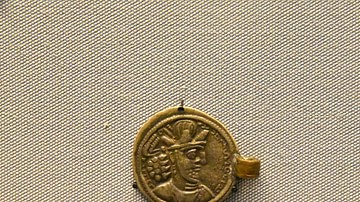
Image
Sassanian Coin Pendant
The coin was probably turned into jewellery after circulating for some time. The fact that it is was made from silver (and gold) suggests that coin jewellery was popular among elite and wealthy people. Silver drachm coin of the Sassanian...
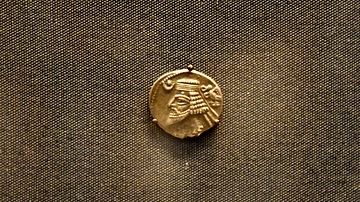
Image
Silver Coin of Farhad IV
The Parthian "King of Kings " Farhad (Phraates) IV, reigned 38-2 BCE, is shown wearing a royal headband (diadem). Divine symbols of the moon crescent and star, and an eagle holding a royal headband, indicate that the king is the rightful...
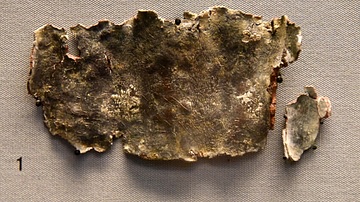
Image
Curse Tablet from Uley
This curse tablet is engraved with with an appeal to Mars and Mercury regarding a theft. The inscription reads: "To the god Mars/Mercury... gold ring from... and iron fetter... who did wrong...let the god discover". Circa 100-200 CE...
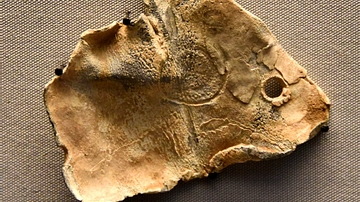
Image
Lead Sheet with Coin Impression
This sheet is decorated with an impression of a coin of the Emperor Valens (Flavius Julius Valens Augustus), 364-378 CE. It may have been intended as a curse against the Emperor. From Fulstow, UK. Donated by Tom Redmayne. (The British Museum...
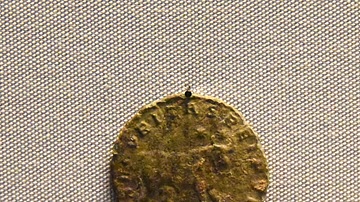
Image
Copper Alloy Coin of Emperor Julian
This coin showing a bull is the first of its type to be unearthed in Britain. Found by Simon Hall, the coin was recorded with the PAS before being donated to the British Museum. Julian unsuccessfully tried to revive paganism after Christianity...

Image
Bronze As coin from the Roman Republic
This is one of the first Roman portrait coins. Roman Republican coins did not usually depict living people, although a statue of the politician Sulla appeared on a coin during his lifetime. The son of Pompey the Great adapted a traditional...
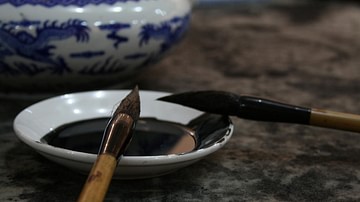
Image
Calligraphy Brushes
Calligraphy brushes. Calligraphy was an important art form in many ancient Asian cultures and an essential element of elite education.

Image
Khonsemhab and the Ghost
Ancient Egyptian ostracon with the beginning of a ghost story. Terracotta from Deir el-Medina, 19-20th Dynasty, New Kingdom of Egypt, found by Schiaparelli in 1905.
Museo Egizio, Turin.
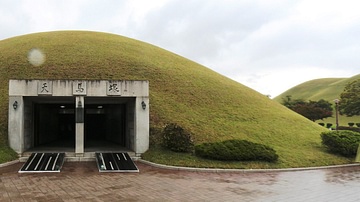
Image
Cheonmachong ('Heavenly Horse Tomb')
The Silla royal tomb Cheonmachong ('Heavenly Horse Tomb'), Gyeongju, Korea. 6th century CE. The tomb was excavated in 1973 CE and, amongst hundreds of other treasures, contained a coffin, gold crown, jewellery pieces, and a painted horse...

Image
Silla Gold Crown from Cheonmachong
The gold crown from the Silla tomb Cheonmachong ('Heavenly Horse Tomb'), Gyeongju, Korea. 6th century CE, gold and jade. Height 32.5 cm. National Treasure No. 188. (Gyeongju National Museum)